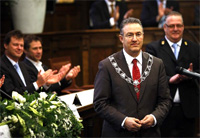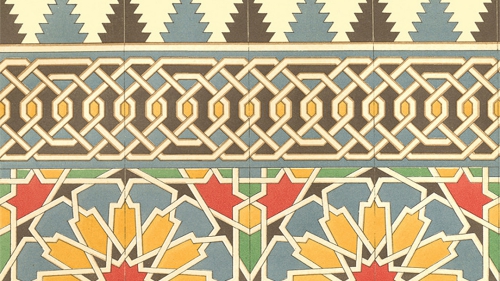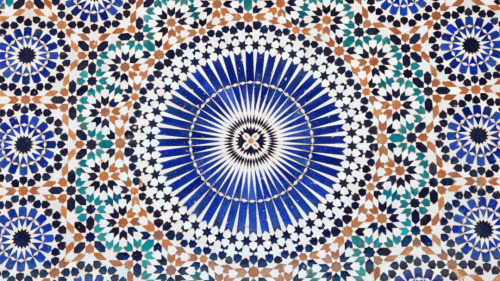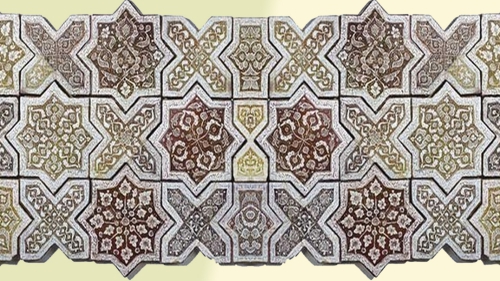Son of an Imam takes control of 2nd largest Dutch city
 |
| Morocco-born Ahmed Aboutaleb is installed as mayor of Rotterdam. |
The veiled women clutch their children's hands as they scurry past the liquor store, ignoring rows of vodka bottles on their way to the Muslim butcher's next door.
Across the street, male customers emerge from the Climax sex shop with their purchases and quickly stride away without a second glance at the Turkish kebab restaurant just opening for lunch.
The conservative and liberal, religious and secular, Dutch and foreign stand side by side here in Rotterdam, in a contrasting and at times uneasy coexistence where social and cultural middle ground can be elusive.
The job of finding that middle ground has now fallen onto the shoulders of a thoughtful Moroccan-born Muslim who arrived in Rotterdam just nine months ago. His address: the mayor's office.
Ahmed Aboutaleb is the first Muslim immigrant to lead a major Dutch city. The son of an imam, he was appointed mayor of Rotterdam late last year and in January became the official face of the Netherlands' second-largest city.
His is the classic immigrant success story, the saga of a youth who landed in the Netherlands as a teenager, worked hard and climbed the social ladder, first as a journalist, then as a politician in free-wheeling Amsterdam.
But his nomination as mayor by political party leaders in Rotterdam, who sought someone of national stature for the largely ceremonial post, took even seasoned observers by surprise.
This is, after all, a city where the national clash over immigration and integration, particularly of Muslims, has been at its most volatile.
In 2002, Pim Fortuyn, a populist and openly gay politician who slammed Islam as a "backward" religion, was fatally shot by a white assassin claiming to act in support of the Muslim community.
How the 48-year-old Aboutaleb fares as mayor could well have an effect beyond Rotterdam's borders. With ethnic minorities accounting for almost half its population, the city serves in many ways as a laboratory of demographic change for the rest of the Netherlands, and potentially other parts of Europe.
Thus far into his six-year term, analysts say, the bespectacled Aboutaleb has trod softly, getting a feel for Rotterdam's tricky political landscape. Though he is a member of the city's ruling left-wing Labor Party, as mayor he is supposed to hold himself above party politics.
Within the last several weeks, however, Aboutaleb has said that he intends to step into the debate on integration. Although he has not specified how, it will mean navigating a minefield of competing beliefs, agendas and power plays by politicians, activists and bureaucrats.
"That is quite a risk for him, because if he fails . . . there is nobody above him," said Rinus van Schendelen, a professor of political science at Rotterdam's Erasmus University.
As mayor, Aboutaleb must gingerly maneuver a cultural war pitting those who believe Dutch liberal, secular society to be under threat from a growing religious minority against others who say that Muslims and other immigrants have been unfairly scapegoated.
Right-wing politicians demanded that Aboutaleb demonstrate his loyalty by giving up his Moroccan passport (he holds dual nationality). Geert Wilders, the country's most inflammatory public figure, declared that Aboutaleb's appointment was "as ridiculous as appointing a Dutchman as mayor of Mecca."
Muslims, by contrast, were excited that one of their own had risen so high -- an "Obama on the Maas," as some have dubbed him, for the river that runs through Rotterdam.
"I was really happy that he became mayor," said pharmacist Jilani Sayed, 29. "A mayor has to hold the city together. He's got the potential to do that."
The mayor's job is largely ceremonial, with the big exception of public safety and police, which comes under his supervision. But what the post lacks in direct authority it makes up for in influence and longevity.
"After every election, you are the one that stays. . . . So people start trusting you as the consistent part of the city government," said Marco Pastors, head of Livable Rotterdam, the right-wing party of Fortuyn. "People look up to you, and when you are looked up to, you have powers."
Aboutaleb declined requests for an interview. A spokeswoman cited the need for him to stay focused on his duties.
Friends and foes praise him for spending his first months on a listening tour of various neighborhoods, to help damp skepticism over the fact that he comes not just from Morocco but -- as egregious for some -- from Amsterdam, Rotterdam's big rival.
But there have been missteps. Critics questioned an official trip Aboutaleb took to Morocco in June, during which he met the country's foreign minister and appeared to step on the toes of the Dutch central government.
In August, a dance party for thousands of beachgoers devolved into pandemonium and brawls in which one man was killed. The mayor, criticized for not assigning enough police officers to patrol the event, ordered a two-year ban on such parties.
And in a foretaste of the challenges that await in the simmering caldron of immigration issues, the city in August fired integration advisor Tariq Ramadan, a well-known Islamic scholar. City officials said Ramadan's hosting of a show on Iranian state television could be perceived as an endorsement of the regime in Tehran.
Although he had no role in the decision, Aboutaleb expressed support for it. That, in turn, outraged many Muslims here, especially the young, with whom Ramadan was a popular reformist figure.
"Aboutaleb goes with the wind of politics," said entrepreneur Abdel Hafid Bouzidi, 30, who is of Moroccan descent. "He goes too much to the right."
Right-wing politicians certainly laud Aboutaleb for criticizing his own and insist that he keep on doing so.
Before his appointment as mayor, his highest-profile moment came during the national uproar after the 2004 slaying of anti-Islamic filmmaker Theo van Gogh by a Muslim extremist who shot him and slit his throat. Speaking at an Amsterdam mosque, Aboutaleb sternly told Dutch Muslims that if they did not subscribe to the Netherlands' values of tolerance and openness, they ought to catch the first plane out.
Pastors, the head of Livable Rotterdam, was a member of the conclave of city leaders who nominated Aboutaleb for mayor, and he took some heat within his party for acceding to the choice.
Now it's time, he said, for Aboutaleb to start speaking out on "friction points" such as homosexuality and the role of women.
"In that position there are three good opportunities a week to do something about it, and he hasn't," Pastors said. "I think it's OK to have the first Muslim mayor [of a major city] in Europe. But let it be somebody that means something to the integration of Muslims in Europe, and not just an able civil servant."
Aboutaleb has acknowledged the pressure on him, especially from foes "who expect me to fail."
"If I can succeed, I will be a key element in persuading immigrant communities that they can have access to power. If I fail, it will have huge consequences for those coming behind me afterwards," he told a British newspaper soon after taking office.
"My job is to build bridges, and Rotterdam is a good place to do that," he said.
"This is the city of big projects where the sky is the limit, but also a city with high levels of poverty. My job is to be mayor for everyone, from the businessmen to the kid from Suriname just trying to earn a living."
Source: The Los Angeles Times
Related Suggestions









